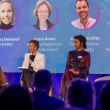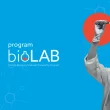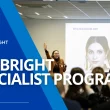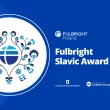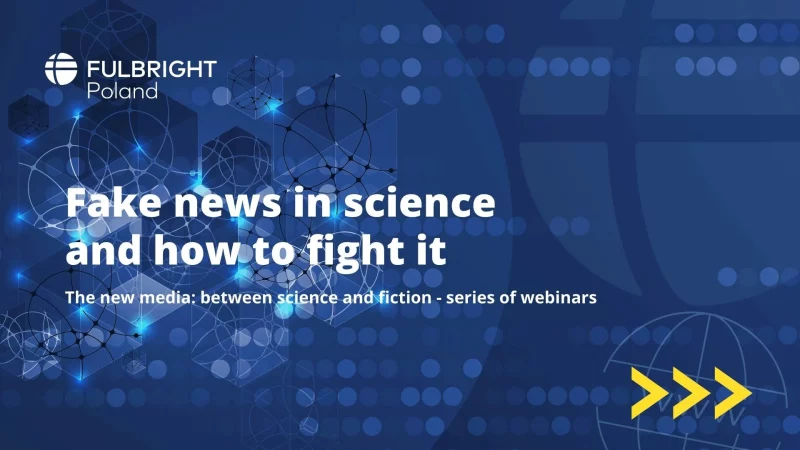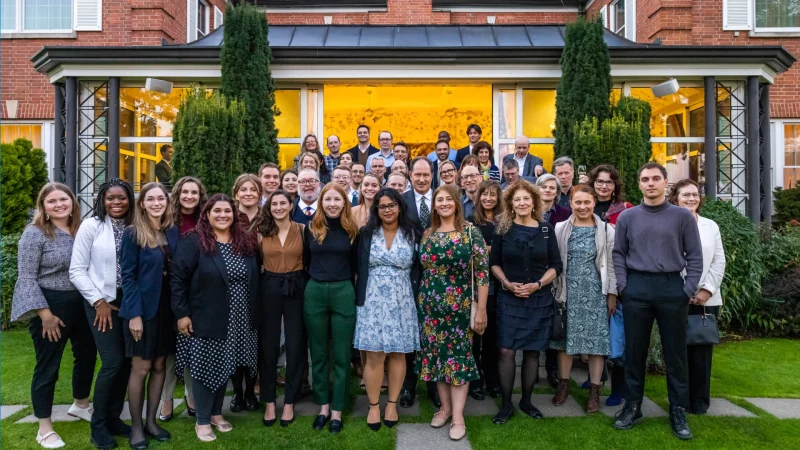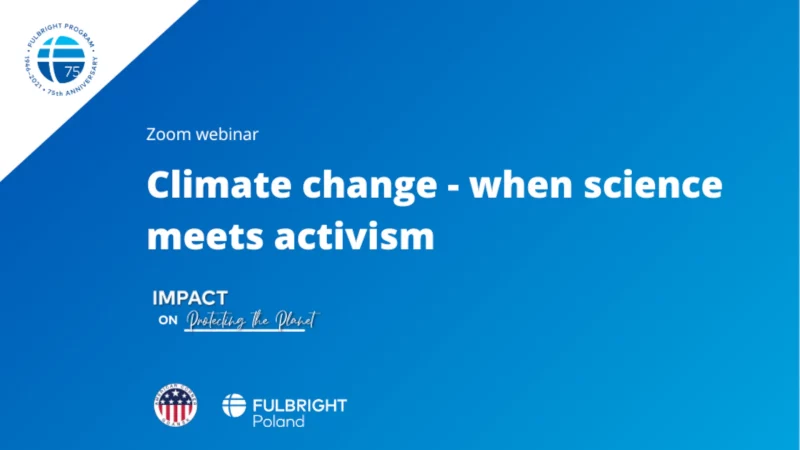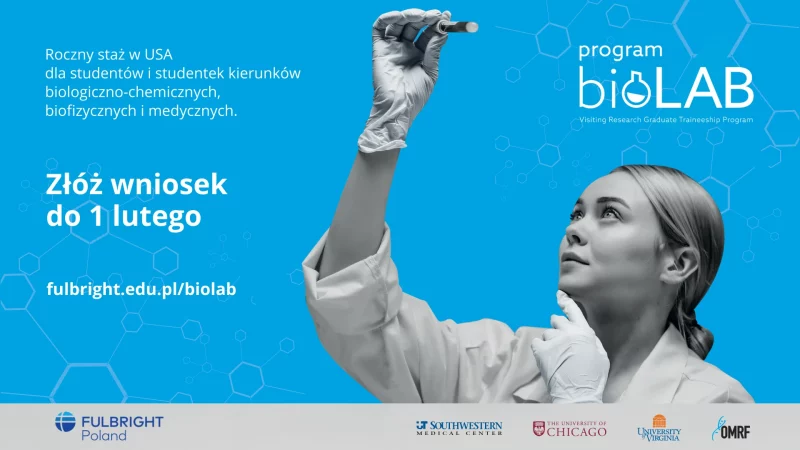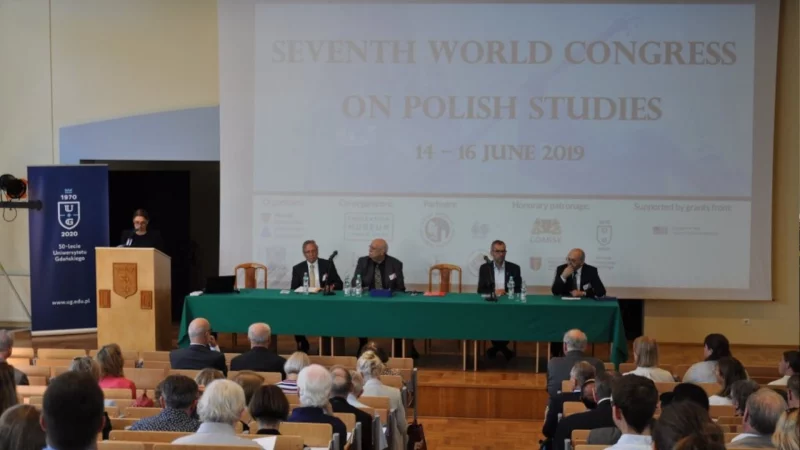The aim of this webinar is to discuss the topic of “fake news” in science: what it is, how it emerges, circulates and grows, as well as to analyze the role of (social) media in this process. It offers ways of counteracting fake news, conspiracy theories and bogus science, as well as shows how certain standards help us fight these phenomena. The panelists discussed what can be done to help elevate the level of trust towards science and scientists.
This webinar took place on February 18, 2021 at 3:00-4:30 pm CET as part of “The new media: between science and fiction” series.
Recording
Speakers
Anna M. Czarnecka
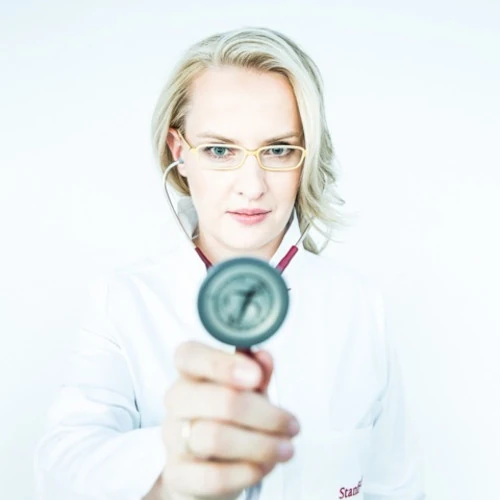
Anna M. Czarnecka, DSc MD PhD, is a physician and molecular biologist. She currently works as a specialist in clinical oncology at the Department of Soft Tissue/Bone Sarcoma & Melanoma, Maria Sklodowska-Curie National Research Institute of Oncology and in the Department of Experimental Pharmacology of Mossakowski Medical Research Centre. She is a graduate of the Medical University of Warsaw and the University of Warsaw. In addition, she is also a graduate of postgraduate studies in innovation management in the health sector (Kozminski University). Her research focuses on drug resistance and the search for new clinical and molecular predictive and prognostic markers for melanoma and sarcomas.
She completed numerous trainings and international internships. She is the recipient of many awards, including scholarships from the Goldman Sachs Foundation, Kościuszkowska Foundation and Fulbright Program, as well as the Mentoring and START Programs of the Foundation for Polish Science, the L’Oreal Scholarship for Women and Science, and finally “Kryształka Zwierciadła” for scientific achievements and approach to the patient.
Starting in 2020, she holds the position of Deputy Director for Science at the Maria Sklodowska-Curie National Research Institute of Oncology.
Doug Specht
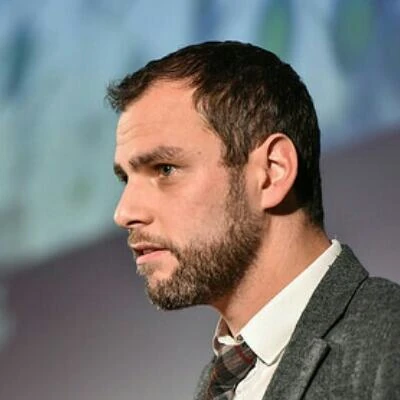
Doug Specht is a Chartered Geographer (CGeog. FRGS), a Senior Lecturer (SFHEA) and the Director of Teaching and Learning in the School of Media and Communication at the University of Westminster. His research examines how knowledge is constructed and codified through digital and cartographic artefacts, focusing on development issues in Latin America and Sub-Saharan Africa, where he has carried out extensive fieldwork. He also writes and researches on pedagogy, and is the author of the Media and Communications Student Study Guide. He writes and speaks on topics of data ethics, development, education and mapping practices at conferences and guest lectures around the world.
Moderator
Dariusz Jemielniak
Dariusz Jemielniak is a full professor at Kozminski University, a chair of MINDS (Management in Networked and Digital Societies) department, faculty associate at Berkman-Klein Center for Internet and Society, Harvard University and a Fulbright alumnus. Most recent publications include: Collaborative Society (2020, MIT Press, with A. Przegalińska), Thick Big Data (2020, Oxford University Press), Common Knowledge? (2014, Stanford)
Recent articles:
- Leon Ciechanowski, Dariusz Jemielniak, Peter Gloor (2020) AI research without coding: The art of fighting without fighting: Data science for qualitative researchers, Journal of Business Research, 117, pp. 322-330;
- Dariusz Jemielniak (2019) Wikipedia: Why is the common knowledge resource still neglected by academics?, Gigascience, 8(12), pp. Giz139,
- Jérôme Hergueux, Dariusz Jemielniak (2019) Should digital files be considered a commons? Copyright infringement in the eyes of lawyers, The Information Society, 35(4), pp. 198-215
- Dariusz Jemielniak, Gwinyai Masukume, Maciej Wilamowski (2019) The Most Influential Medical Journals According to Wikipedia: Quantitative Analysis, Journal of Medical Internet Research, 21 (1), pp. e11429


